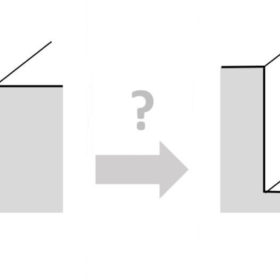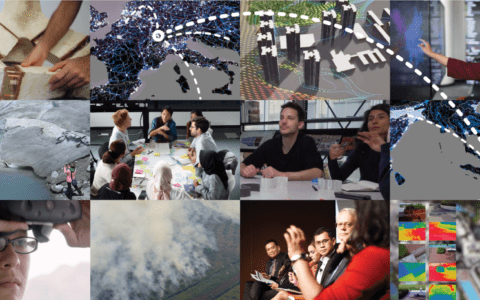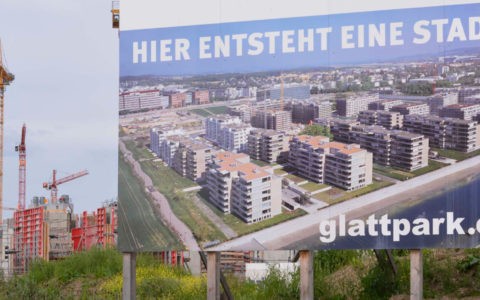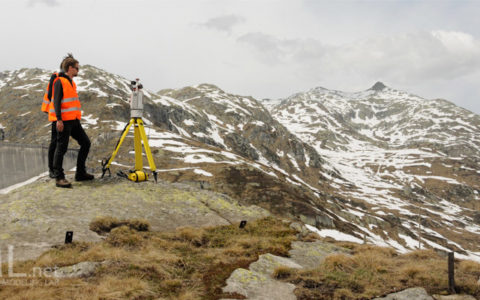E-Bike City
E-Bike City is a lighthouse project of the Department of Civil, Environmental and Geomatic Engineering (D-BAUG) at ETH Zurich. Over the next three years, seven chairs will join forces to explore the effects of an urban future giving absolute priority to cycling, micromobility and public transport.
Main Idea
- Road space is allocated with absolute priority to uninterrupted cycling and reliable public transport.
- The necessary space is won by consciously removing capacity and connectivity from private cars.
- Despite lower capacity and more detours, today’s access of buildings by car as well as by utility and service vehicles is maintained. Special arrangements for emergency vehicles ensure their proper operation.
- The dedicated cycling infrastructure has a city-wide, consistent quality, defined as a roughly equal share of road space on every street, with an initial assumption of ~50%.
- The infrastructure is optimized for the mass use of diverse types of e-bikes (pedelecs, s-pedelecs, scooter-style e-bikes) and other micromobility vehicles, addressing speed differences, varying vehicle sizes, parking and charging opportunities, and use for freight transport.
- Finally, present and future technologies such as dynamic lanes, connected cars or autonomous driving should be tested for their potential to optimize the use of road space.
Possible Effects
- Decrease of carbon emissions and negative externalities of traffic
- Higher rates of cycling are associated with health benefits
- Willing to cycle in a safe infrastructure
- Increase the capacity of urban networks
- Change of spatial patterns for accessibility and social equity
Project timeline: July 2022 to July 2025
Project website

Sub projects
The D-BAUG is focussing on urbanisation, sustainable infrastructures and the environment. The E-Bike City project touches each of these, by asking of how to restructure the city and design its transport infrastructure to allow transport to reduce its CO2 contribution to net-zero, and doing so by a tangible, easy to communicate result. The realization of the project will be performed via following nine subprojects:
Overall design and co-ordination
Prof. Dr. Kay W. Axhausen
Multi-scale responsive public transport planning for bi-modal demand
Prof. Dr. Francesco Corman, Transport Systems
Designing the new network and its capacity
Prof. Dr. Kay W. Axhausen, Transport Planning
Congestion-informed dynamic space allocation for different transport modes
Dr. Anastasios Kouvelas, Traffic Engineering
Data-driven mobility behavior analysis for e-bike-city feasibility assessment
Prof. Dr. Martin Raubal, Cartography & Geoinformation
Assessment of environmental impacts of e-bike mobility scenarios (Li-ion batteries)
Prof. Dr. Stefanie Hellweg, Institute of Environmental Engineering
Mobility behavior change and implementation of an e-bike-city
Prof. Dr. David Kaufmann, Spatial Transformation Laboratories (STL)
Accessibility, behaviour and equity in the e-bike-city
Prof. Dr. Kay W. Axhausen, Transport Planning
Costs of creating an e-bike-city
Prof. Dr. Bryan T. Adey, Infrastructure Management
Estimating choice models for daily schedules
Prof. Dr. Michel Bierlaire, Transportation and Mobility Laboratory, EPFL Lausanne


